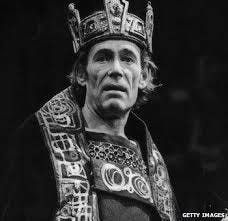A very personal map of the world
… these are the little lessons that stayed with me, a map of the world I keep folded in my heart.

By Capital Thinking • Issue #1076 • View online
In the late 1960s, when I was small, I lived in a garden apartment complex in Fairfax County, Virginia, across the river from Washington DC.
My next door neighbor, Robert Knox, was a retired rear admiral in the Coast and Geodetic Survey, a branch of the Treasury Department tasked with making maps of coastlines.
He had also been a US Army sergeant in World War One.
GETTING THERE
A Very Short Biography by Walter Kirn:
He babysat me when my mother was at work as a nurse in a local hospital and my father was working as a clerk for the Court of Patents and Appeals.
He taught me world geography out of a child’s textbook on the subject and also drilled me in weights and measures, methods of oceanic navigation, and basic astronomy.
We took field trips to the Smithsonian Institute. We lunched at his private club, The Cosmos Club.
Between formal lessons, he showed me his photo albums, which contained pictures he’d taken over the years with a prized German camera he sometimes let me handle, including shots of himself with British Royalty and aboriginal Australians.
I learned from all this that explorers still exist, that the world and the heavens are vast yet knowable, and that a life of service to the people is worthy of admiration and even wonder.
My family moved to a town in Minnesota of five hundred people, a village beside a river. My father worked forty miles away, for the 3M corporation in St. Paul, but he wanted to canoe and fish.
My mother held a job as an ER nurse in a larger town in Wisconsin, working night shifts and telling tales in the mornings, while I ate breakfast, of bloody car wrecks, house fires, and farming mishaps, often, as she described them, caused by alcohol.
We had a general store, a bar, two gas stations, and a public library where I killed time after school with the librarian.
She was a feminist. She went by “Ms.” She pushed books on me that I later realized had a liberal flavor. One was “Sounder.”
It featured a dog and black people down south, a region I couldn’t imagine and found scary, a place of poverty and sudden violence. She also urged on me alarming volumes about the crises facing our vulnerable planet such as The Population Bomb.
I learned from all this that society is complicated.
My father was the town attorney, a job he volunteered for. One night at a town council meeting he made a speech on the issue of the moment.
Our local bar was without a liquor license and the owner, a fellow named Roger, wished to buy one. The beer his bar sold was “3.2 beer,” a weak concoction thought not to be intoxicating.
Customers who wanted cocktails had to supply the booze from from their own bottles. My father spoke out against Roger’s application, arguing that it would harm the town, lead to accidents, harm families. The application was denied.
A few nights later the phone rang in our house, loud as a klaxon, at a late, late hour. I stood outside my parents’ bedroom door, eager to hear the news. Roger had killed himself inside the bar.
From this I found out that voting has consequences.

